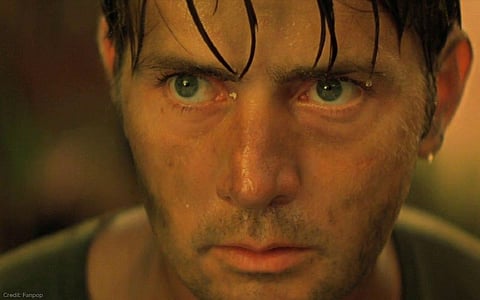
- Reviews
- Power List 2024
- Cannes 2024
- In-Depth Stories
- Web Stories
- News
- FC Lists
- Interviews
- Features
- FC SpecialsFC Specials

Amongst the niche of cinema fanatics, there is little to no debate regarding the pedestal on which Francis Ford Coppola is placed. Regarded as one of the greatest filmmakers to have ever lived, Coppola is known for gifting cinema with classics such as The Godfather Trilogy, Apocalypse Now and The Rainmaker. Another contribution to cinema by Coppola is his daughter, Sofia, who in her own regard has attained the status of an auteur, with films such as Lost In Translation and The Virgin Suicides.
From the initial stages of development, the aura around Apocalypse Now had always been finicky. If things went to plan, George Lucas would have been at the helm of the film and Apocalypse Now would have been shot in Vietnam while the war was still very much being fought. But in filmmaking, seldom do things go according to plan. By the time the film got to Coppola, the war was over and he had a much bigger vision for the film. When asked about his film in a conference, Coppola famously said, "my film isn't about Vietnam, it is Vietnam."
Unlike Lucas, Coppola did not want to simply visit Vietnam and capture the war, he wanted to create the world of war. What seemed like a straightforward 14-week schedule in the Philippines would eventually stretch to 16 months. According to Murphy's Law, 'Anything that can go wrong, will go wrong', and that's precisely what happened during the production of the film – from a typhoon halting production, to Harvey Keitel being fired and replaced by Martin Sheen. Sheen himself was struggling to function as his raging problem with alcohol deepened.
If this was a shower, there was a shit-storm to come. Enter Marlon Brando. Brando arrived on set being grossly overweight contrasting with the lean-and-mean warrior image that Coppola had in mind. To add fuel to the fire, Brando had not read the script or Conrad's novel Heart of Darkness, on which the film was based. Going for broke, Brando shaved off his hair on a whim and instructed Coppola to film him in the shadows while he completely disregarded the lines Coppola wrote and improvised his version of the character's dialogues.
The production schedule was overshot by meteoric standards. This was largely due to multiple factors ranging from Brando's unnatural demands to increase his already inflated salary to natural outbursts such as storms and accidental on-set deaths to the President of the Philippines recalling his choppers that he'd lent to the crew to fight his own war with the rebels. Given the apocalyptic scenario in which the film was shot, the title was perfectly in sync with the crew's current situation: Apocalypse Now.
These battles, however gruesome, were orchestrated by exterior elements. Coppola, though, had another war to fight: a war within. He battled recurring suicidal urges, had several epileptic seizures and multiple nervous breakdowns during the production of the film. Coppola's body wasn't the only agent to revolt to this constant state of self-induced pressure and chaos. Seeing that the film had gone way past its original budget, Coppola was forced to mortgage his own vinery as collateral and fund the project with his own money.
As his wife and young kids hung around in the tropical smoke-clad forest of a country at war and the prospect of bankruptcy was becoming a reality, it was nothing short of miracle that Coppola didn't go insane.
Having been to hell and back, Apocalypse Now premiered at the Cannes Film Festival in 1979 and went on to the win the Palme d'Or. Around 40 years since its release, it is still considered to be the holy grail of war filmmaking, with Coppola being its messiah. The tribulations faced by him and his crew only substantiate the fact that without darkness, we have no light.